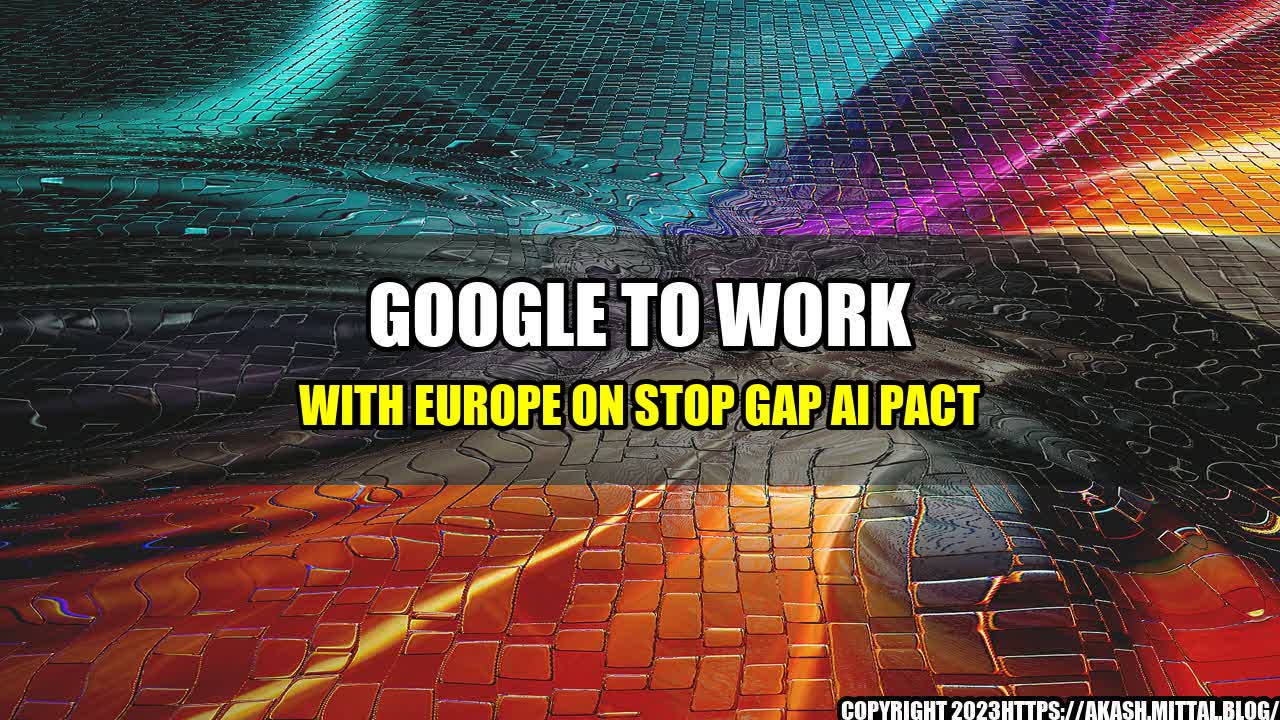
Google recently announced that it will work with Europe to create a stop gap AI pact. The goal of the agreement is to ensure that artificial intelligence (AI) is developed responsibly and ethically, and that it does not harm individuals or society. This is an important step forward in the development of AI, and it highlights the growing awareness of the potential risks associated with this technology.
AI has the potential to transform our lives in many positive ways. It can help us to solve some of the biggest problems facing our society, from climate change to healthcare. However, it also has the potential to be misused or to cause unintended harm. For example, biased algorithms could perpetuate unfair or discriminatory practices, while autonomous weapons could cause damage and destruction without proper oversight. It is therefore crucial that AI is developed responsibly and ethically, and that there are safeguards in place to ensure that it benefits everyone.
One of the best examples of the need for responsibility in AI development comes from the world of facial recognition technology. In 2018, it was revealed that Microsoft's facial recognition software had an error rate of 0.1% for white men, but 34.7% for darker-skinned women. This bias could have serious implications in contexts such as law enforcement or border control, where false positives could lead to wrongful arrests or detentions. This example highlights the importance of developing AI in an inclusive and unbiased manner, and the need for careful testing and validation to ensure that it works for everyone.
There are many examples of how AI is being developed responsibly and ethically. For example, Google has developed an AI system that can detect breast cancer in mammograms with a level of accuracy that is equal to or better than human radiologists. This technology has the potential to significantly improve breast cancer screening and diagnosis, and it shows how AI can be used for social good. Another example is the International Joint Conference on AI, which brings together researchers, practitioners, and policymakers from around the world to discuss the latest developments in AI and to explore the ethical and social implications of this technology.
Why Google's AI pact with Europe is a game changer for responsible development
One personal anecdote comes from the development of a chatbot that was designed to help people manage their mental health. The creators of the chatbot wanted to ensure that it was developed in a responsible and ethical manner, and they worked closely with mental health professionals to ensure that it was safe and effective. The result was a chatbot that was able to have real conversations with people about their mental health, and to provide them with helpful resources and support. This example shows how AI can be used to improve people's lives, and how responsibility and ethics are key to making this happen.
If you are interested in developing AI in a responsible and ethical manner, there are several practical tips that you can follow:
Curated by Team Akash.Mittal.Blog
Share on Twitter Share on LinkedIn